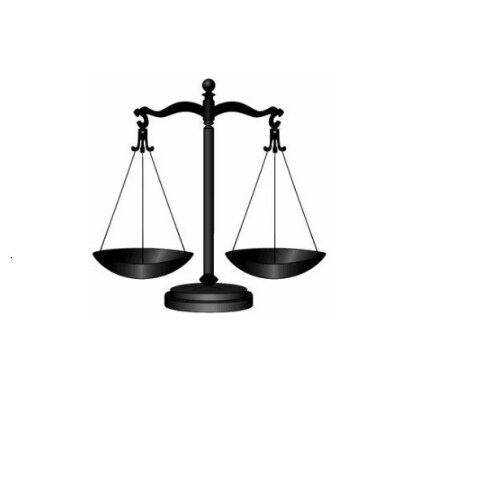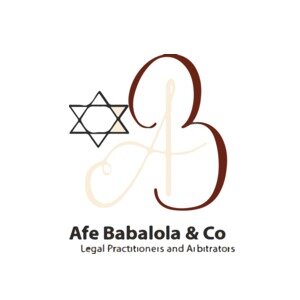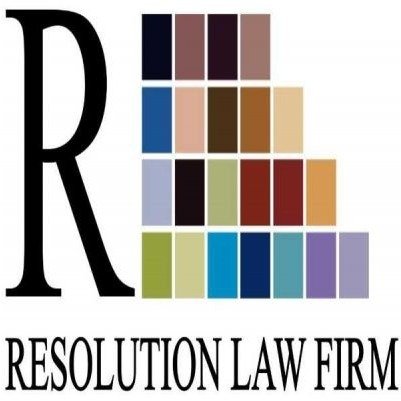Best Domestic Violence Lawyers in Abuja
Share your needs with us, get contacted by law firms.
Free. Takes 2 min.
Free Guide to Hiring a Family Lawyer
List of the best lawyers in Abuja, Nigeria
Nigeria Domestic Violence Legal Questions answered by Lawyers
Browse our 3 legal questions about Domestic Violence in Nigeria and read the lawyer answers, or ask your own questions for free.
- Domestic violence
- My sister is being charged to court for maltreating children in her custody, do I need a lawyer to defend her?
-
Lawyer answer by GAVEL & GREY LEGAL PRACTITIONERS
Yes, you need a lawyer to represent your sister.
Read full answer - Domestic Violence in Marriage
- My husband has been beating me for any slight provocation for the 9 years we have been married. We have three kids. How can I get him to stop it?
-
Lawyer answer by CO-dunni Law Solicitors
You can choose to get him arrested, and report to an action group for women. Or you get a divorce. Talk to a Lawyer near you, or contact me directly
Read full answer - Pls sir,ma... what do I do when my husband abuse me..beats me up and threaten to take my children from me after sending me away because I caught him cheating
- I want to leave the marriage but I need my children with me..pls helpPls sir, ma'am... what do I do when my husband abuses me..beats me up, and threatens to take my children from me after sending me away because I caught him cheating
-
Lawyer answer by CO-dunni Law Solicitors
I think you know what to do, you can decide to stay endure the beatings along with emotional abuse and stick it out because marriage is scarce or you can decide to leave get a divorce then fight for custody...
Read full answer
About Domestic Violence Law in Abuja, Nigeria
Domestic Violence refers to any form of abuse or violence that occurs within a domestic or family setting. In Abuja, Nigeria, laws have been established to protect individuals from domestic violence and provide legal remedies for victims.
Why You May Need a Lawyer
While seeking legal advice in cases of domestic violence, it is crucial to have a lawyer by your side who can guide you through the legal process. They can help you understand your rights, assist in filing necessary legal documents and provide representation in court if required.
Local Laws Overview
In Abuja, Nigeria, the Violence Against Persons (Prohibition) Act was enacted in 2015 to address domestic violence. Key aspects of the law include:
- Prohibition of all forms of violence, such as physical, sexual, emotional, economic, and psychological abuse.
- Protection orders that can be obtained by victims to ensure their safety and prevent further abuse.
- Establishment of specialized courts to handle cases of domestic violence more effectively.
- Provision of support services, such as counseling and shelters, for victims of domestic violence.
Frequently Asked Questions
Q: What should I do if I am a victim of domestic violence?
A: If you are a victim of domestic violence, it is crucial to prioritize your safety. Remove yourself from the abusive situation and seek immediate help from the police or a domestic violence helpline. It is also advisable to consult with a lawyer who can assist you further.
Q: How can I obtain a protection order?
A: To obtain a protection order, you need to file an application at the specialized court dealing with domestic violence cases. Your lawyer can guide you through the process and assist you in gathering the necessary evidence to support your application.
Q: Can I press charges against my abuser?
A: Yes, you can press charges against your abuser. Your lawyer will help you gather evidence, file a complaint with the police, and ensure that the legal process is followed to hold your abuser accountable for their actions.
Q: Are there any support services available for domestic violence victims?
A: Yes, there are support services available for domestic violence victims in Abuja. These services include counseling, medical assistance, and access to shelters where you can find temporary refuge.
Q: Can I seek legal help even if I am an immigrant or do not have Nigerian citizenship?
A: Yes, regardless of your citizenship or immigration status, you have the right to seek legal help if you are a victim of domestic violence in Abuja, Nigeria. Domestic violence laws apply to all individuals within the jurisdiction.
Additional Resources
Here are some resources that can provide helpful information and support regarding domestic violence in Abuja, Nigeria:
- Abuja Domestic Violence Helpline: +234 XXX XXXX
- Legal Aid Council of Nigeria
- International Federation of Women Lawyers (FIDA)
Next Steps
If you need legal assistance in cases of domestic violence, it is essential to take the following steps:
- Ensure your safety by removing yourself from the abusive situation.
- Contact the police or a domestic violence helpline for immediate help.
- Consult with a lawyer specializing in domestic violence cases.
- Gather any evidence you may have, such as photographs, medical records, or witness statements.
- Follow your lawyer's guidance in filing complaints, obtaining protection orders, or seeking legal redress.
Lawzana helps you find the best lawyers and law firms in Abuja through a curated and pre-screened list of qualified legal professionals. Our platform offers rankings and detailed profiles of attorneys and law firms, allowing you to compare based on practice areas, including Domestic Violence, experience, and client feedback.
Each profile includes a description of the firm's areas of practice, client reviews, team members and partners, year of establishment, spoken languages, office locations, contact information, social media presence, and any published articles or resources. Most firms on our platform speak English and are experienced in both local and international legal matters.
Get a quote from top-rated law firms in Abuja, Nigeria — quickly, securely, and without unnecessary hassle.
Disclaimer:
The information provided on this page is for general informational purposes only and does not constitute legal advice. While we strive to ensure the accuracy and relevance of the content, legal information may change over time, and interpretations of the law can vary. You should always consult with a qualified legal professional for advice specific to your situation.
We disclaim all liability for actions taken or not taken based on the content of this page. If you believe any information is incorrect or outdated, please contact us, and we will review and update it where appropriate.

















